Search
Search Results
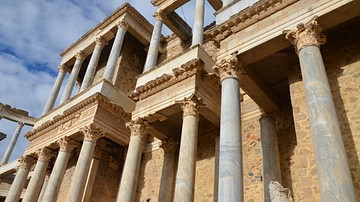
Article
Top 5 Roman Sites in Southern Spain
Almost 700 years of continuous Roman occupation have left impressive traces in the Spanish landscape. Spain was then known as 'Hispania' and is now a fascinating location for the archaeological traveller. The Spanish provinces were amongst...
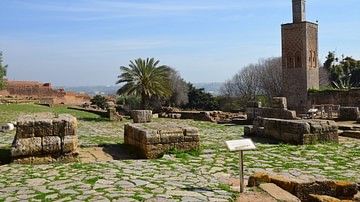
Article
Exploring Roman Morocco
Morocco, then known as Mauretania, was annexed by the Roman Empire in 40 CE. The Romans in Morocco left a vast legacy with archaeological sites that dot the country's northern landscape, especially Volubilis, with its vestiges of Roman houses...

Definition
Saint Sophia Cathedral, Kyiv
Saint Sophia Cathedral in Kyiv, Ukraine is a monument of 11th-century architecture, painting, and mosaic work. The cathedral was named after Hagia Sophia and, as the main temple of the state, played the role of its spiritual, political and...
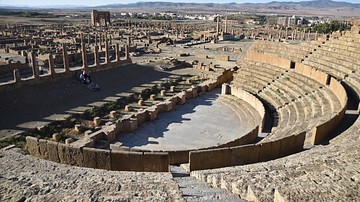
Article
The Splendours of Roman Algeria
Algeria, Africa's largest country, stretches from the Mediterranean coastline to the Saharan desert interior. The country has some of the finest and most diverse Roman sites, including Timgad and Djémila, both well-preserved and UNESCO-listed...
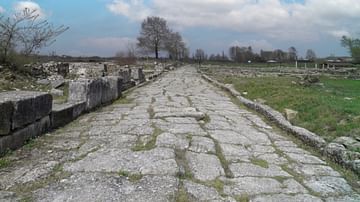
Article
Visitor's Guide to Ancient Dion
Dion is located at the foot of Mount Olympus in the north of Greece, in what would have been ancient Macedon. It takes its name from the most important Macedonian sanctuary dedicated to Zeus ("Dios” meaning "of Zeus”). Legend claims this...

Article
10 Virtual Tours of Archaeological Sites & Museums in Turkey
Thanks to the new Sanal Muze digital portal released by the Ministry of Culture and Tourism of Turkey in 2020 CE, history lovers and art enthusiasts can now take virtual tours of Turkey's best archaeological sites and museums. There are currently...
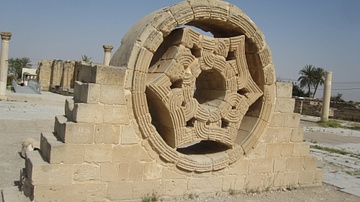
Definition
Hisham's Palace
Hisham's Palace at Khirbat Al Mafjar (the ruins of Mafjar) is an Umayyad structure that is listed among the last of the surviving antiquities of Romans and Byzantines. It was built by Walid Ibn Yazid in 734 CE near Jericho in the Jordan Valley...
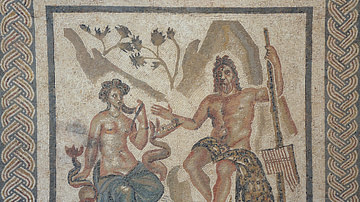
Image
Cyclops Polyphemus & Galatea Mosaic
Mosaic with the Cyclops Polyphemus and the nymph of the sea Galatea, discovered in 1959 during excavation work under the Plaza de la Corredera in Cordoba, Spain. The mosaic dates to the 2nd century CE. Salón de los Mosaicos (Hall of Mosaics...
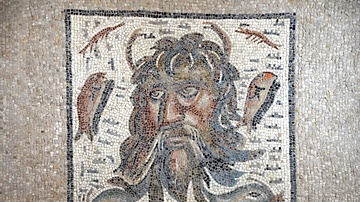
Image
Oceanus Mosaic
Mosaic with a mask of the god Oceanus with lobster claws protruding from his head, and dolphins and fish escaping from his beard. Dated to 2nd-3rd century CE. Salón de los Mosaicos (Hall of Mosaics) Alcazar of the Christian Monarchs, Cordoba...
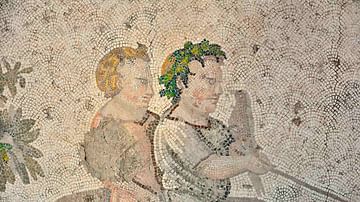
Article
The Great Palace of Constantinople
The Great Palace of Constantinople was the magnificent residence of Byzantine emperors and their court officials which included a golden throne room with wondrous mechanical devices, reception halls, chapels, treasury, and gardens. In use...